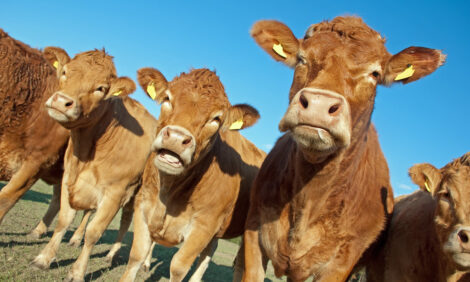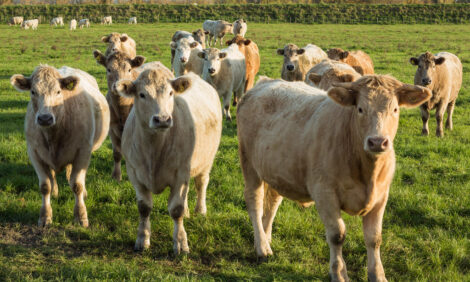



Industry Counts The Cost Of F And M
UK - A ban on all livestock movements - essential to prevent the spread of foot-and-mouth disease - has added huge costs to the region's farming and food businesses, writes rural affairs editor Michael Pollitt.Award-winning Norfolk butcher Sam Papworth has built the reputation of the family business on quality home-produced beef, lamb and pork.
The meat for the four butcher's shops - in Fakenham, Swaffham, Sheringham and the latest in the chain, Palmer's of North Walsham - is sourced from the family's farming enterprises.
Now, the livestock movement ban has cost the thriving business about £2,000 a week because he can't slaughter his own stock. And to add insult to injury, he might have to buy imported meat if the standstill is not lifted soon. “It is a double-edged sword because I've also got two slaughtermen without any work,” said Mr Papworth.
His shops are supplied through his own multi-species abattoir at Fakenham, which handles beef cattle, lambs and pigs but the two slaughtermen are now standing idle.
“Obviously, we're OK for a week and just a bit more on beef because we hang the meat and we've got a reasonable stock.
Pork on the other hand doesn't take to hanging very much,” he added.
“It'll pinch by the end of the week because the shops have got through their own handed meat for the week. They'll be looking at cutting next week's supply and that'll be the end of it and we'll have run out of our own stuff.”
The locally-reared-and-slaughtered strategy is key to the business, which provides quality meat to the growing customer base keen to buy from a trusted and respected supplier.
“If we subsequently run out of home-produced meat, I'll probably have to buy lamb from someone. Again, it won't be home-produced lamb which is the nub of the business really. Some wholesalers have got a stock of lamb, although it will be 10 days old.


